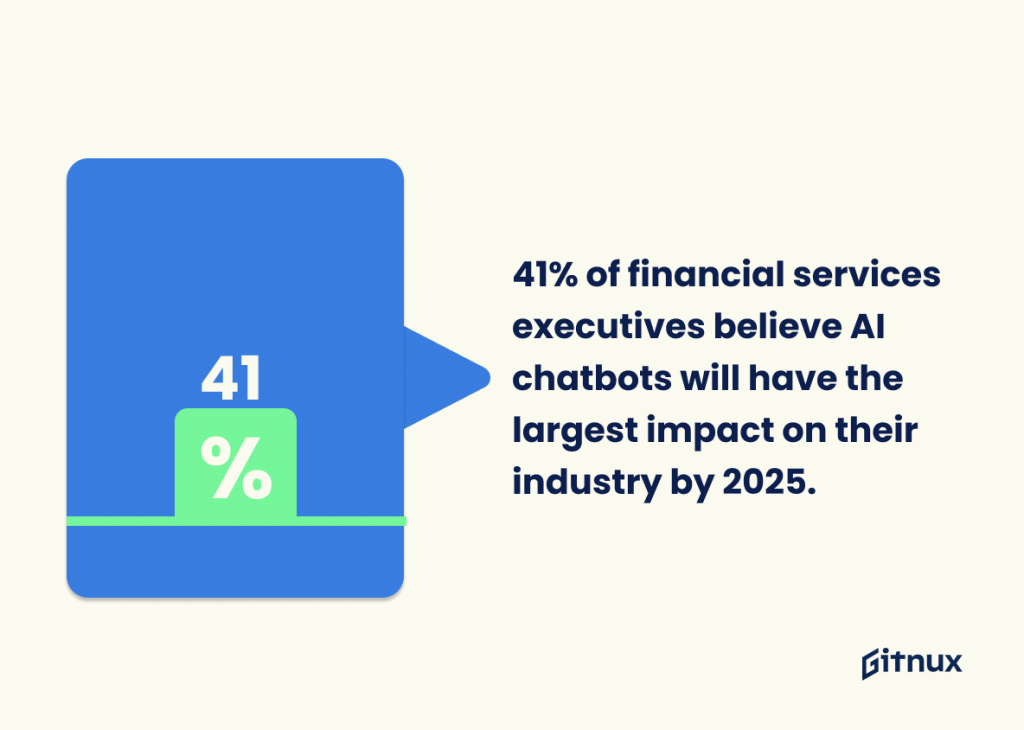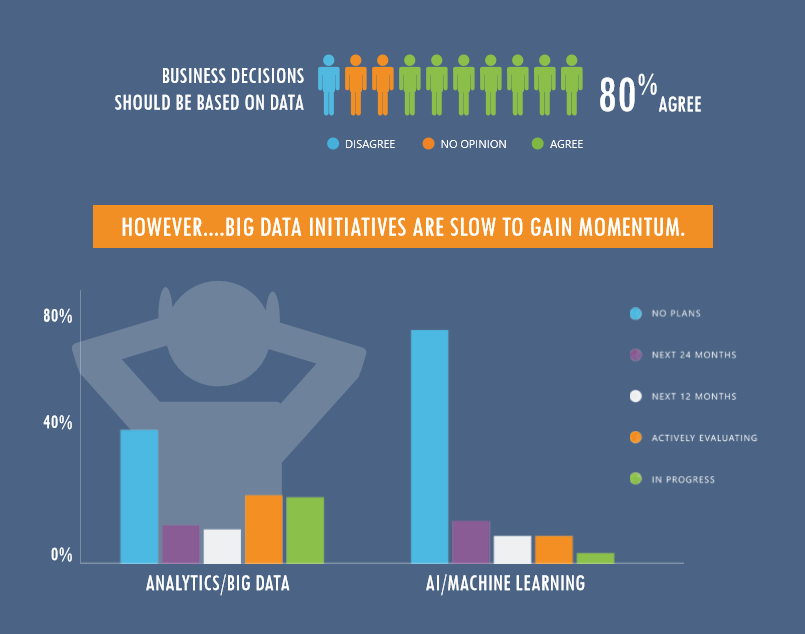The financial industry has traditionally prioritized delivering exceptional customer service. However, the advent of artificial intelligence (AI) has brought forth a compelling opportunity for AI-powered chatbots in customer service. By harnessing AI, financial institutions can enhance operational efficiency, foster personalized customer interactions, and gain valuable insights through advanced data analysis.
This blog post will explore AI-powered chatbots in customer service for financial institutions. It will uncover challenges, successes, benefits, industry trends, market opportunities, and the future outlook to transform customer service with artificial intelligence.

AI and Financial Institutions
AI-powered customer service uses AI technologies like machine learning and natural language processing to improve customer service, automate sales processes, and enhance overall service. It collects and analyzes customer data to provide personalized recommendations, creating a tailored experience and reducing manual tasks for customer service representatives.
The financial industry has long been focused on providing excellent customer service because it directly impacts their bottom line. As per Gitnux, a significant majority of 77% of financial institutions have either implemented or are implementing AI to enhance customer service communication. This focus is further heightened by the rise of digital banking solutions that allow customers to access services anytime from anywhere using their mobile devices or computers.
Financial institutions heavily rely on technology, to deliver efficient and effective customer service experiences aligned with customer needs and preferences. Amidst the COVID-19 pandemic, the finance industry experienced a substantial 37% increase in adoption rates. Technologies like natural language processing (NLP) in customer service aid the growth of financial institutions by enhancing analytics, predictive capabilities, and identifying areas for improvement in their current products and services.
Understanding AI-Powered Customer Service
AI-powered chatbots in customer service are changing the way financial institutions interact with their customers. Artificial intelligence (AI) is a powerful technology that allows businesses to analyze data and make decisions based on the insights gained from it. Conversational AI can help financial institutions improve customer service by streamlining processes, personalizing interactions, and gaining valuable insight into customer preferences and behaviors.
Financial institutions can benefit greatly from AI by automating many of the tedious and time-consuming tasks involved like enabling more personalized and efficient customer interactions. It also provides valuable data analysis to improve customer engagement strategies and business performance. AI can offer insights into customer engagement and business performance that are not possible using traditional methods.
Artificial Intelligence in the Financial Industry
Financial institutions are continuously seeking to deliver an exceptional customer experience. However, the intricacies of the financial industry and its regulations present challenges for customer service in this sector. Striking a balance between regulatory compliance and top-notch customer support can be demanding for these institutions. To remain competitive, they must seek avenues to enhance their digital customer service strategies and operations.
Chatbots and virtual assistants powered by AI are emerging as solutions to enhance customer service in the financial industry. With this technology, financial institutions can leverage intelligent chatbots and virtual assistants to swiftly address customer inquiries and schedule appointments. In fact, Capgemini reported that within the next three years, a significant majority of 70% of consumers are projected to substitute their visits to physical stores or banks with virtual assistants.

Source: Gitnux
Predictive analytics enables the identification of behavioral patterns among customers, empowering companies to proactively meet their needs, ultimately improving efficiency and customer satisfaction.
Additionally, AI-powered technologies can help detect fraud and other suspicious activity more effectively than manual processes. According to Fintech Times’ State of AI in Financial Services report, fraud detection in payments and transactions emerged as the leading AI use case among all respondents, with a prevalence rate of 31%.
In the financial industry, there are notable instances of effective AI-powered customer service. Bank of America’s Erica virtual assistant assists customers in financial management, Capital One’s Eno chatbot addresses inquiries about credit card accounts, and JP Morgan Chase’s predictive analytics tool analyzes customer data to detect fraud. These examples showcase the significant impact that well-implemented initiatives can have within financial institutions’ operations.
Industry Trends and Market Opportunities
The use of AI-powered chatbots in the financial industry is becoming increasingly prominent, as more institutions are turning to automation to improve efficiency and maintain competitive advantage. Several factors, such as cost reduction, enhanced efficiency, and the goal of delivering a personalized customer experience that drive the increasing focus on automated customer service.
Financial institutions are making significant investments in conversational AI technologies like virtual assistants and chatbots to automate tasks such as email responses and identify customer behavior patterns. In 2022, the estimated interaction rate with bank chatbots is around 37% of the U.S. population, and this figure is expected to increase in the future. These advancements offer exciting opportunities for financial institutions aiming to maintain a competitive edge by implementing AI-driven solutions for their customer service initiatives.
One key opportunity that has arisen from advances in AI technology is providing customers with a truly personalized experience regarding banking services. Banks can utilize predictive analytics and automation to gain insights into customer needs, tailor campaigns, promptly respond to emails, and effectively detect fraud.
According to the 2018 Tech Insight Report, when asked whether business decisions should be based on data analytics, an impressive 85% of business and IT executives, managers, and team members agreed.

Source: BDO Digital
With the help of data and analytics, artificial intelligence solutions present a significant opportunity for banks regarding cross-selling and upselling. These solutions enable banks to analyze customer purchasing patterns and track their responses to marketing offers. With this valuable information, banks can tailor their marketing campaigns accordingly to maximize effectiveness and drive better outcomes.
Moreover, these technologies offer the potential for automating customer onboarding processes, enabling financial institutions to streamline operations while providing exceptional experiences. Additionally, advanced analytics solutions provide deeper insights into performance, helping banks identify areas for improvement. These benefits highlight the importance of leveraging AI-powered customer service initiatives to maintain competitiveness in the current marketplace.
Future Outlook of AI and Finance
The potential for AI in customer service is virtually limitless. As artificial intelligence technology continues to develop, financial institutions can look forward to even more advanced capabilities, such as natural language processing (NLP), automated customer segmentation, and predictive analytics. NLP will enable financial institutions to better understand customer queries and respond with more accurate information faster.
Automated customer segmentation will allow banks to create personalized experiences tailored to each customer’s individual needs. Predictive analytics will enable banks to anticipate the future behavior of customers and offer them tailored products and services that meet their needs before they even ask for them.
In conclusion, AI-powered chatbots initiatives have great potential for improving customer service in the financial industry. By automating mundane tasks, providing personalized experiences, detecting fraud more effectively, delivering better insights from AI data analytics, and offering proactive customer engagement and retention opportunities, these solutions have the potential to help businesses remain competitive in today’s market.
Additionally, AI can improve compliance and risk management by detecting suspicious activity more quickly than manual processes. With 65 percent of banks planning to begin using AI technologies within the next three years, it is essential that financial institutions consider leveraging this technology if they want to stay ahead of their competition in terms of customer service excellence.























Leave a comment!